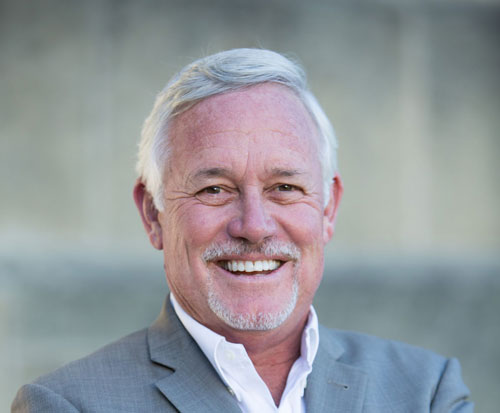Opinion: Salinas Riverbed fires pose imminent threat to Paso Robles

Ron Cuff
Salinas River campsites must be permanently closed
–It isn’t a crime to be poor, jobless, mentally ill or addicted to alcohol or other drugs. However, for too many years we have permitted the greed of the various addiction for profit industries to spend billions of dollars marketing their products in full view of vulnerable young people. What the average person doesn’t know is that nine out of ten people who suffer from substance use disorder or addiction began using alcohol or other drugs before age 18 and this scientific fact is not lost on the giant alcohol, tobacco and cannabis industries. Their lobbies spend billions in exchange for unimpeded access to the eyes and ears of children who can potentially become customers for life.
To our collective detriment, we are left to suffer from the poverty, crime, and child abuse caused or exacerbated by substance use disorder. We are all painfully aware of the regular shooting rampages frequently associated with the psychotic behavior caused by chronic, high potency cannabis use. Cannabis Use Disorder and Cannabis Induced Psychosis plague the 18-25 age group.
For the past three years, I have enjoyed frequent walks along the beautiful Salinas River Trail. This evolved into an almost daily regimen of removing trash, mostly discarded liquor containers and clothing, as well as over 150 stolen shopping carts. The litter on the trail manifested itself because our city decided not to enforce its own “No Camping”, “No Trespassing”, and “No Dumping” ordinances, resulting in hundreds of people establishing permanent camps in the Salinas Riverbed.
Squatting on someone else’s property, especially when it pollutes a waterway and threatens the community with fire and destruction is actually a crime (CA Penal Code 647e). Public property was never meant to be a free campsite for the poor, jobless, mentally ill, or addicted. The commons must be maintained for safe use by all of us. Enabling the desecration of the commons puts the responsibility on us, the enablers. When people are given no boundaries, they will push the limits further, and tacit approval soon becomes entitled possession.
The current drought we are experiencing portends a potential for fire capable of burning hundreds of homes located along the east side of the river, and depending on wind conditions, the entire City of El Paso de Robles.
On Saturday, April 17, a woman deliberately set fire to river bed vegetation just north of the Highways 46 overpass. An eyewitness reported that she said she was hearing “voices” telling her to set the fire. The arsonist was arrested, charged with two drug-related misdemeanors and felony arson. Although she posed a threat to herself and the entire community, reportedly, she was released immediately without a mental health evaluation or treatment.
According to city fire officials, approximately 200 fires were started by riverbed campers in 2019, and 129 in 2020. The latest fires that started on Sunday, May 3, and Monday, May 9 are reminders of the growing peril. Like all other fires, they are “under investigation,” but the fire department has publicly acknowledged that the May 3 fire emanated from a “cooking area” near an illegal campsite.
A synopsis of the conversations I’ve had with city council members, the chief of police, the city manager, the city stormwater manager, the police commander who leads the four member Community Action Team (CAT), the mayor and city attorney follows.
- The consistent and oft-repeated reason given for not enforcing the law is that “our hands are tied”.
- Many people living in the riverbed don’t like rules and many don’t want to leave. If they do leave, they come back.
- Some people desperately want treatment, but tell me they find it impossible to navigate the bureaucracy.
- The chief of police offered to meet with me, but canceled after it became clear that I wasn’t interested in hearing about the challenges of “Homelessness” but wanted instead to learn about law enforcement priorities and his plan to close riverbed campsites.
- I requested a riverbed “walk along” with the Paso Robles Community Action Team (CAT), but was turned down.
- When I met the CAT leader outside the police department and asked how often his team went into the riverbed, his response was vague.
- The local volunteer group that has formed to try to help the campers out, say except for firefighters, they have never seen a city or county employee in the riverbed.
- City leaders declare that the City of Paso Robles cannot endorse, or help organize a community riverbed clean-up due to “liability concerns”.
- Surprisingly, the city attorney expressed no concern about the liability exposure or potential crippling lawsuits that would result from fire losses or deaths due to failure to enforce 21.20.232 PRMC. (No Camping).
There is a lot more to this story, but the story needs to end before it morphs into a larger tragedy. Formal complaints have been filed with the EPA, Cal-EPA and the Central Coast Regional Water Quality Control Board. I have offered my services to organize and fund an all-volunteer “river clean-up day” once the campers are given proper legal notice to remove their belongings. A revealing conversation with our local California Fish and Wildlife warden revealed that success is possible because other California cities have navigated the legal hurdles required to remove riverbed campsites.
Notwithstanding some very costly vegetation and trash removal projects, little is being done to protect the sensitive riparian habitat from continual pollution. It’s costing taxpayers nearly a dollar a pound to remove tons of trash, and riverbed campers generate more every day.
The now-famous Martin vs. Boise court decision declared that people have a right to sleep on public property if no other alternatives are provided, however, camping on and desecrating public property is much more than just sleeping.
The new ECHO shelter at Motel Six is open, and reopening Borkey Flats is presumably still an option. Now that we have a shelter available, what acceptable reason is there for permitting hundreds of humans to live unsheltered and unsafe? On April 16, the Paso Robles Daily News reported that after four months of operation, the Motel Six facility had housed 274 people. That means with 60 rooms available on any given night, perhaps as many as 6,926 room nights went unoccupied.
It’s time to reject the city’s conflation of “homelessness” with the public’s very reasonable expectation that laws protecting public safety be enforced. These are two separate issues. Furthermore, there is nothing compassionate about turning a blind eye to human suffering. A lack of shelter is seldom the real problem, but rather, nearly always a symptom of other untreated conditions, usually drug addiction, mental illness, or both.
We can no longer afford to allow riverbed campers to jeopardize public safety and thwart environmental protection. It’s time that we take action. Mayor Martin and Paso Robles City Councilmembers, the hand-wringing must end. We must muster the courage to permanently close the Salinas riverbed campsites, or suffer the unspeakable tragedy that awaits.
Respectfully,
Ron Cuff
Commander, U.S. Navy Ret.





















